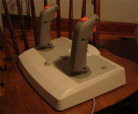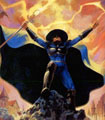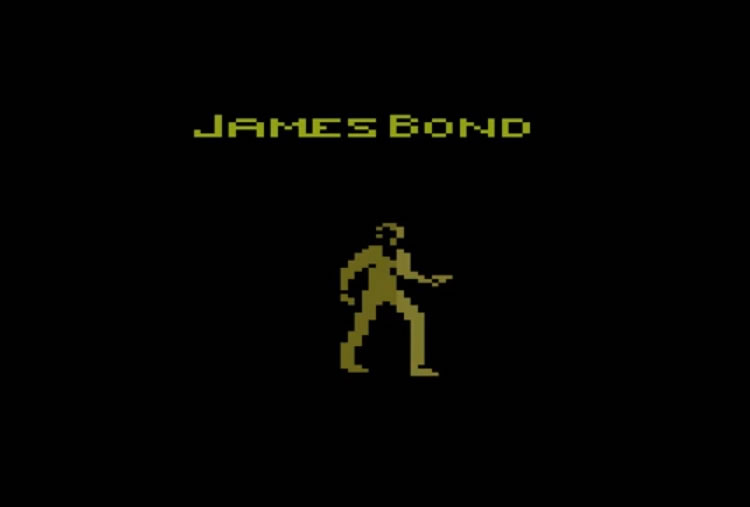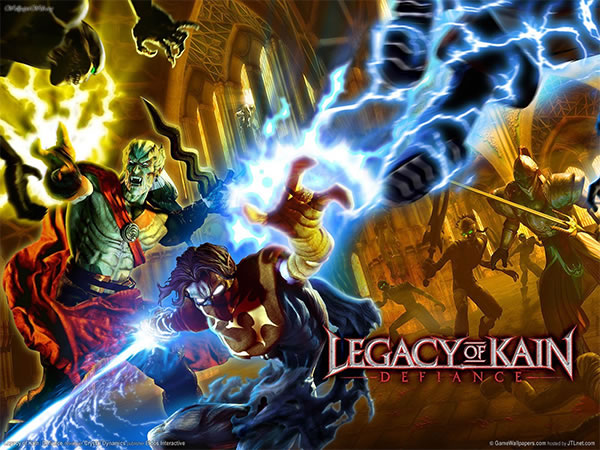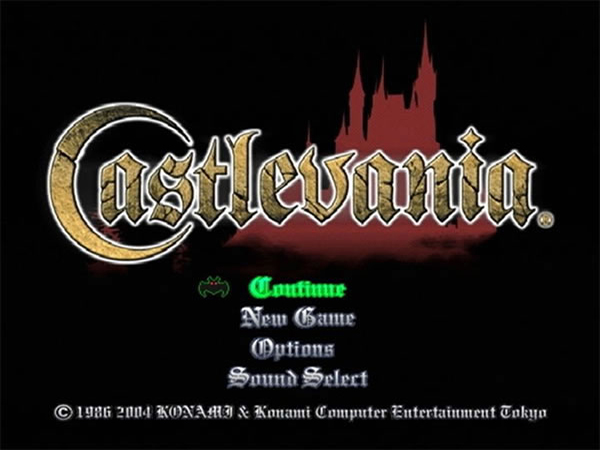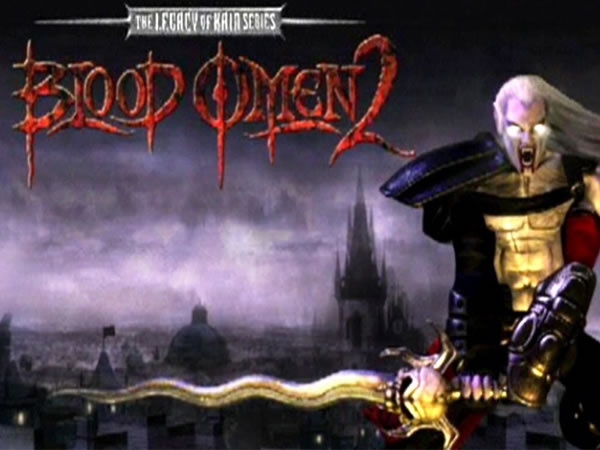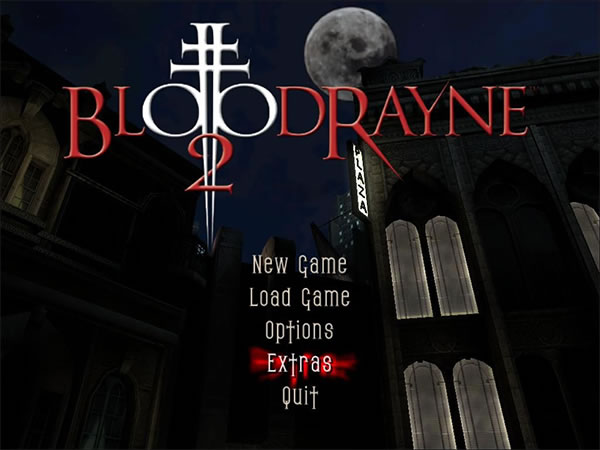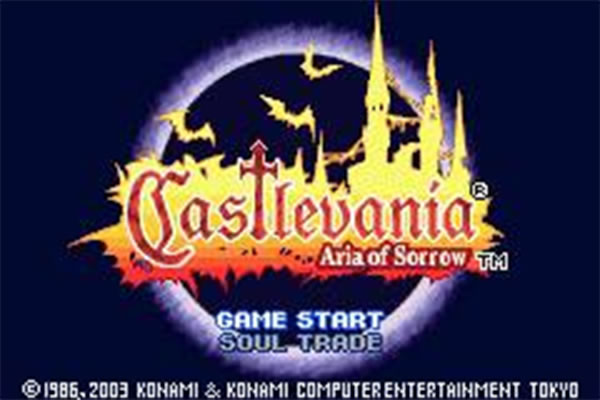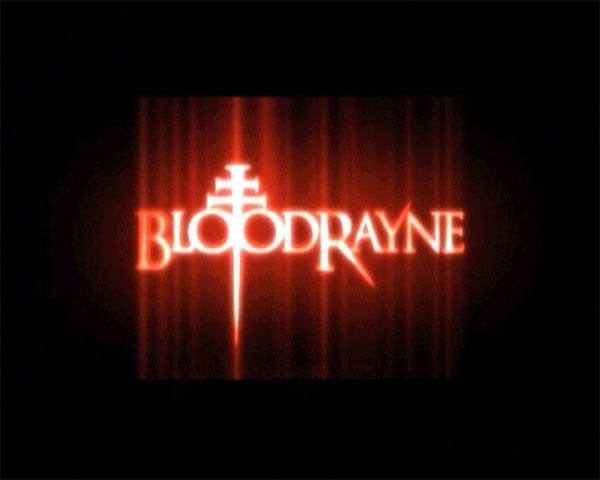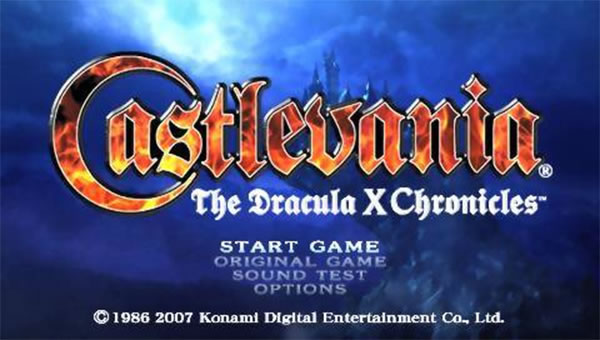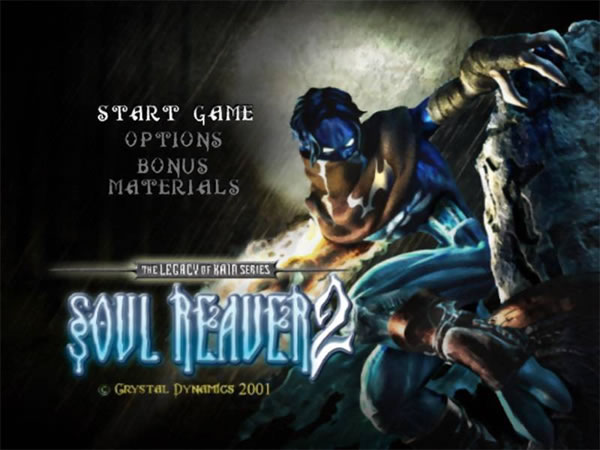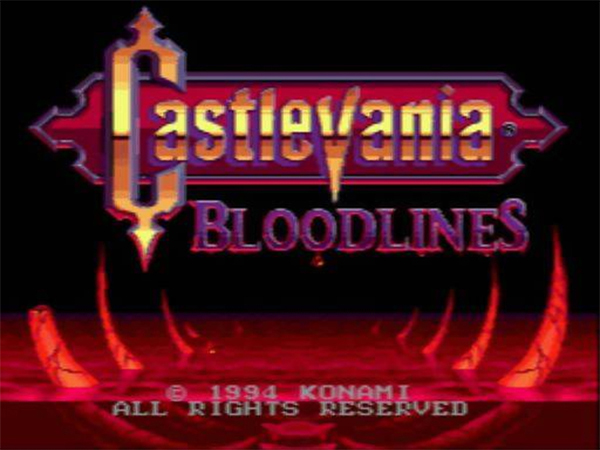- CLASSIC MAGAZINES
- REVIEW CREW
A show recapping what critics thought back
when classic games first came out! - NEXT GENERATION'S BEST & WORST
From the worst 1-star reviews to the best
5-stars can offer, this is Next Generation! - NINTENDO POWER (ARCHIVE)
Experience a variety of shows looking at the
often baffling history of Nintendo Power! - MAGAZINE RETROSPECTIVE
We're looking at the absolutely true history of
some of the most iconic game magazines ever! - SUPER PLAY'S TOP 600
The longest and most ambitious Super NES
countdown on the internet! - THEY SAID WHAT?
Debunking predictions and gossip found
in classic video game magazines! - NEXT GENERATION UNCOVERED
Cyril is back in this spin-off series, featuring the
cover critic review the art of Next Generation! - HARDCORE GAMER MAGAZING (PDF ISSUES)
Download all 36 issues of Hardcore Gamer
Magazine and relive the fun in PDF form!
- REVIEW CREW
- ELECTRONIC GAMING MONTHLY
- ELECTRONIC GAMING MONTHLY RANKS
From Mario to Sonic to Street Fighter, EGM
ranks classic game franchises and consoles! - ELECTRONIC GAMING MONTHLY BEST & WORST
Counting down EGM’s best and worst reviews
going year by year, from 1989 – 2009! - ELECTRONIC GAMING BEST & WORST AWARDS
11-part video series chronicling the ups and
downs of EGM’s Best & Worst Awards!
- ELECTRONIC GAMING MONTHLY RANKS
- GAME HISTORY
- GAME OVER: STORY BREAKDOWNS
Long-running series breaking down game
stories and analyzing their endings! - A BRIEF HISTORY OF GAMING w/ [NAME HERE]
Real history presented in a fun and pithy
format from a variety of game historians! - THE BLACK SHEEP
A series looking back at the black sheep
entries in popular game franchises! - INSTANT EXPERT
Everything you could possibly want to know
about a wide variety of gaming topics! - FREEZE FRAME
When something familiar happens in the games
industry, we're there to take a picture! - I'VE GOT YOUR NUMBER
Learn real video game history through a series
of number-themed episodes, starting at zero! - GREAT MOMENTS IN BAD ACTING
A joyous celebration of some of gaming's
absolute worst voice acting!
- GAME OVER: STORY BREAKDOWNS
- POPULAR SHOWS
- DG NEWS w/ LORNE RISELEY
Newsman Lorne Riseley hosts a regular
series looking at the hottest gaming news! - REVIEW REWIND
Cyril replays a game he reviewed 10+ years
ago to see if he got it right or wrong! - ON-RUNNING FEUDS
Defunct Games' longest-running show, with
editorials, observations and other fun oddities! - DEFUNCT GAMES QUIZ (ARCHIVE)
From online quizzes to game shows, we're
putting your video game knowledge to the test!- QUIZ: ONLINE PASS
Take a weekly quiz to see how well you know
the news and current gaming events! - QUIZ: KNOW THE GAME
One-on-one quiz show where contestants
find out if they actually know classic games! - QUIZ: THE LEADERBOARD
Can you guess the game based on the classic
review? Find out with The Leaderboard!
- QUIZ: ONLINE PASS
- DEFUNCT GAMES VS.
Cyril and the Defunct Games staff isn't afraid
to choose their favorite games and more! - CYRIL READS WORLDS OF POWER
Defunct Games recreates classic game
novelizations through the audio book format!
- DG NEWS w/ LORNE RISELEY
- COMEDY
- GAME EXPECTANCY
How long will your favorite hero live? We crunch
the numbers in this series about dying! - VIDEO GAME ADVICE
Famous game characters answer real personal
advice questions with a humorous slant! - FAKE GAMES: GUERILLA SCRAPBOOK
A long-running series about fake games and
the people who love them (covers included)! - WORST GAME EVER
A contest that attempts to create the worst
video game ever made, complete with covers! - LEVEL 1 STORIES
Literature based on the first stages of some
of your favorite classic video games! - THE COVER CRITIC
One of Defunct Games' earliest shows, Cover
Critic digs up some of the worst box art ever! - COMMERCIAL BREAK
Take a trip through some of the best and
worst video game advertisements of all time! - COMIC BOOK MODS
You've never seen comics like this before.
A curious mix of rewritten video game comics!
- GAME EXPECTANCY
- SERIES ARCHIVE
- NINTENDO SWITCH ONLINE ARCHIVE
A regularly-updated list of every Nintendo
Switch Online release, plus links to review! - PLAYSTATION PLUS CLASSIC ARCHIVE
A comprehensive list of every PlayStation
Plus classic release, including links! - RETRO-BIT PUBLISHING ARCHIVE
A regularly-updated list of every Retro-Bit
game released! - REVIEW MARATHONS w/ ADAM WALLACE
Join critic Adam Wallace as he takes us on a
classic review marathon with different themes!- DEFUNCT GAMES GOLF CLUB
Adam Wallace takes to the links to slice his way
through 72 classic golf game reviews! - 007 IN PIXELS
Adam Wallace takes on the world's greatest spy
as he reviews 15 weeks of James Bond games! - A SALUTE TO VAMPIRES
Adam Wallace is sinking his teeth into a series
covering Castlevania, BloodRayne and more! - CAPCOM'S CURSE
Adam Wallace is celebrating 13 days of Halloween
with a line-up of Capcom's scariest games! - THE FALL OF SUPERMAN
Adam Wallace is a man of steel for playing
some of the absolute worst Superman games! - THE 31 GAMES OF HALLOWEEN
Adam Wallace spends every day of October afraid
as he reviews some of the scariest games ever! - 12 WEEKS OF STAR TREK
Adam Wallace boldly goes where no critic has
gone before in this Star Trek marathon!
- DEFUNCT GAMES GOLF CLUB
- DAYS OF CHRISTMAS (ARCHIVE)
Annual holiday series with themed-episodes
that date all the way back to 2001!- 2015: 30 Ridiculous Retro Rumors
- 2014: 29 Magazines of Christmas
- 2013: 29 Questionable Power-Ups of Christmas
- 2012: 34 Theme Songs of Christmas
- 2011: 32 Game Endings of Christmas
- 2010: 31 Bonus Levels of Christmas
- 2009: 30 Genres of Christmas
- 2008: 29 Controls of Christmas
- 2007: 34 Cliches of Christmas
- 2006: 33 Consoles of Christmas
- 2005: 32 Articles of Christmas
- 2004: 31 Websites of Christmas
- 2003: 29 Issues of Christmas
- 2002: 28 Years of Christmas
- 2001: 33 Days of Christmas
- NINTENDO SWITCH ONLINE ARCHIVE
- REVIEW ARCHIVE
- FULL ARCHIVE
Virtual On: Oratorio Tangram
In 1994 a revolutionary arcade game was released, it featured cutting edge graphics and the incredibly intuitive dual stick control set up. That game was Virtual On: Cyber Troopers. Enter 1998, Virtual On: Oratorio Tangram is released to great excitement in Japan, unfortunately only a few units(six - eight remain) made it to North American arcades. Most gamers had to wait for the Dreamcast port in 2000, a game that, for some reason, is published by Activision.
Graphically, Oratorio Tangram is an incredibly beautiful game; even though it was released in 2000, it continues to beat a lot of games released today (including its god-awful sequel, Virtual On Marz. If you haven't played Marz, don't, it's for your own good). All the environments and characters are sharp, and colorful. This is one game that has aged well. What makes the graphics interesting, though, is the mech design. The mechs artistic design is firmly rooted in anime, with mechs resembling anything from a sailor scout to any number of Gundams, far from the tank like look of a "realistic" mech from a game such as Mech Assault or Chromehounds. The levels, like the mechs themselves, are crisp and well designed, but they really don't look all that interesting. They have an almost utilitarian feel, nothing too special but more then enough to get the job done.
On its own, Oratorio Tangram was an innovative combat game in terms of the actual software. Sega did not see it fit to stop there though; they implemented the Twin Stick control system in both arcades and Japanese versions. The twin sticks are two flight stick-style joysticks with a trigger on each and as well as a single button on the top of each stick. To jump you pull the sticks apart, to move normal you push both in the direction you want, to turn you pull the sticks in opposite direction. You can also crouch, roll and access numerous special attacks by combining these moves with standard attacks (Temjin for example, has about 16 attacks). Now while that seems simple enough , it really is a steep learning curve, once you have a handle on it though, it feels like the smoothest most responsive mech game your ever going to play.
Getting a hold of a pair for your Dreamcast is certainly not going to be easy. These days most people are lacking a mom and pop game store, so a lot of gamers will have to go to eBay like I did. There you will face bid wars that can send the sticks over eighty dollars, and then expect to pay over 15 for shipping. Are they worth it? Hell yes they are worth it, Sega had a great selection of game specific do hickeys, this is up near the top. What's that? You don't have the Twin Sticks and have no intention of ever getting them? Well that's a shame, it's not hopeless for you though; the game offers quite a few button lay outs that an admirable job attempting to simulate two joysticks with only one analog stick. Most I assume, will find a setting they are comfortable with. I don't recommend settling for less then the sticks though.
The single player experience is set up like a fighting game, you face opponent after opponent with no story other then a few paragraphs in the manual to tie it together. Regardless for the lack of reason for your battle, there is certainly a good time to be had going through and learning the ropes of the game. That's really the main purpose of the single player, to ready you for live opponents, and for that it is more then adequate; featuring standard (but necessary) options such as match point, difficulty, time limit, etc. A couple of interesting options are present though. Fog Mode reduces visibility for a harder challenge, and personal favorite for me is the "Infight" mode which strips you of all but your close range weapons. Combine the two and watch your ass get handed to you.
You should go into Oratorio Tangram expecting what it is; a multiplayer experience and it is one hell of one at that. Now it goes without saying (but here I am saying it) that no matter how perfect the controls and arcade perfect the game is, you can't replace playing random people at the arcade, but this game does a pretty good job. Two players split screen is awesome, you will definitely notice your skills improve drastically if you play with a friend, but to be honest, it's really crampt. Luckily VOoT supports system link; hook up two Dreamcasts and two TVs and go at it, that's where this game shines. It really is almost as if you where playing in the arcade when you get system link set up. I should note though, that to access the system link you need to enter a code at the title screen. All I want to know is "why?" (The code: hold L Trigger, R trigger, and A then press start)
The team of Sega and Activision seemed to either have been out to get American gamers or just didn't care about them (and I assume the UK). They got rid of two of the things that made Oratorio Tangram so popular in Japan; online play and a home version of the twin sticks. Oh, and they hid system link, too! I'm not sure what went through their minds when they decided that they would take out online play, the Dreamcast certainly needed more online titles. On the Saturn Virtual on was one of Sega Net's flagship titles, no reason it couldn't have been the same on the Dreamcast. I'm sure there would be fan portals still running Virtual On online to this day like the Sega dedicated have done with a large number of former Sega Net titles.
There isn't much at all in terms of extras, if you beat the game with all the characters you get version 5.2 of the game (As opposed to 5.45, which is what the regular game is, and no I'm not 100% sure what that all means) You can also save replays to your VMU, why anyone would want to do that is beyond me.
Regardless of those glaring omissions which most certainly prevent a perfect score, Virtual On; Oratorio Tangram is a great and unique game that continues to be relevant, whether the main stream remembers it or not. Here we see a classic that is not outdated or surpassed, and until I get another good Virtual On game, it never will be surpassed (at least not to me and the Virtual On faithful).
Graphically, Oratorio Tangram is an incredibly beautiful game; even though it was released in 2000, it continues to beat a lot of games released today (including its god-awful sequel, Virtual On Marz. If you haven't played Marz, don't, it's for your own good). All the environments and characters are sharp, and colorful. This is one game that has aged well. What makes the graphics interesting, though, is the mech design. The mechs artistic design is firmly rooted in anime, with mechs resembling anything from a sailor scout to any number of Gundams, far from the tank like look of a "realistic" mech from a game such as Mech Assault or Chromehounds. The levels, like the mechs themselves, are crisp and well designed, but they really don't look all that interesting. They have an almost utilitarian feel, nothing too special but more then enough to get the job done.
On its own, Oratorio Tangram was an innovative combat game in terms of the actual software. Sega did not see it fit to stop there though; they implemented the Twin Stick control system in both arcades and Japanese versions. The twin sticks are two flight stick-style joysticks with a trigger on each and as well as a single button on the top of each stick. To jump you pull the sticks apart, to move normal you push both in the direction you want, to turn you pull the sticks in opposite direction. You can also crouch, roll and access numerous special attacks by combining these moves with standard attacks (Temjin for example, has about 16 attacks). Now while that seems simple enough , it really is a steep learning curve, once you have a handle on it though, it feels like the smoothest most responsive mech game your ever going to play.
Getting a hold of a pair for your Dreamcast is certainly not going to be easy. These days most people are lacking a mom and pop game store, so a lot of gamers will have to go to eBay like I did. There you will face bid wars that can send the sticks over eighty dollars, and then expect to pay over 15 for shipping. Are they worth it? Hell yes they are worth it, Sega had a great selection of game specific do hickeys, this is up near the top. What's that? You don't have the Twin Sticks and have no intention of ever getting them? Well that's a shame, it's not hopeless for you though; the game offers quite a few button lay outs that an admirable job attempting to simulate two joysticks with only one analog stick. Most I assume, will find a setting they are comfortable with. I don't recommend settling for less then the sticks though.
The single player experience is set up like a fighting game, you face opponent after opponent with no story other then a few paragraphs in the manual to tie it together. Regardless for the lack of reason for your battle, there is certainly a good time to be had going through and learning the ropes of the game. That's really the main purpose of the single player, to ready you for live opponents, and for that it is more then adequate; featuring standard (but necessary) options such as match point, difficulty, time limit, etc. A couple of interesting options are present though. Fog Mode reduces visibility for a harder challenge, and personal favorite for me is the "Infight" mode which strips you of all but your close range weapons. Combine the two and watch your ass get handed to you.
You should go into Oratorio Tangram expecting what it is; a multiplayer experience and it is one hell of one at that. Now it goes without saying (but here I am saying it) that no matter how perfect the controls and arcade perfect the game is, you can't replace playing random people at the arcade, but this game does a pretty good job. Two players split screen is awesome, you will definitely notice your skills improve drastically if you play with a friend, but to be honest, it's really crampt. Luckily VOoT supports system link; hook up two Dreamcasts and two TVs and go at it, that's where this game shines. It really is almost as if you where playing in the arcade when you get system link set up. I should note though, that to access the system link you need to enter a code at the title screen. All I want to know is "why?" (The code: hold L Trigger, R trigger, and A then press start)
The team of Sega and Activision seemed to either have been out to get American gamers or just didn't care about them (and I assume the UK). They got rid of two of the things that made Oratorio Tangram so popular in Japan; online play and a home version of the twin sticks. Oh, and they hid system link, too! I'm not sure what went through their minds when they decided that they would take out online play, the Dreamcast certainly needed more online titles. On the Saturn Virtual on was one of Sega Net's flagship titles, no reason it couldn't have been the same on the Dreamcast. I'm sure there would be fan portals still running Virtual On online to this day like the Sega dedicated have done with a large number of former Sega Net titles.
There isn't much at all in terms of extras, if you beat the game with all the characters you get version 5.2 of the game (As opposed to 5.45, which is what the regular game is, and no I'm not 100% sure what that all means) You can also save replays to your VMU, why anyone would want to do that is beyond me.
Regardless of those glaring omissions which most certainly prevent a perfect score, Virtual On; Oratorio Tangram is a great and unique game that continues to be relevant, whether the main stream remembers it or not. Here we see a classic that is not outdated or surpassed, and until I get another good Virtual On game, it never will be surpassed (at least not to me and the Virtual On faithful).
HOME |
CONTACT |
NOW HIRING |
WHAT IS DEFUNCT GAMES? |
NINTENDO SWITCH ONLINE |
RETRO-BIT PUBLISHING
Retro-Bit |
Switch Planet |
The Halcyon Show |
Same Name, Different Game |
Dragnix |
Press the Buttons
Game Zone Online | Hardcore Gamer | The Dreamcast Junkyard | Video Game Blogger
Dr Strife | Games For Lunch | Mondo Cool Cast | Boxed Pixels | Sega CD Universe | Gaming Trend
Game Zone Online | Hardcore Gamer | The Dreamcast Junkyard | Video Game Blogger
Dr Strife | Games For Lunch | Mondo Cool Cast | Boxed Pixels | Sega CD Universe | Gaming Trend
Copyright © 2001-2025 Defunct Games
All rights reserved. All trademarks are properties of their respective owners.
All rights reserved. All trademarks are properties of their respective owners.







